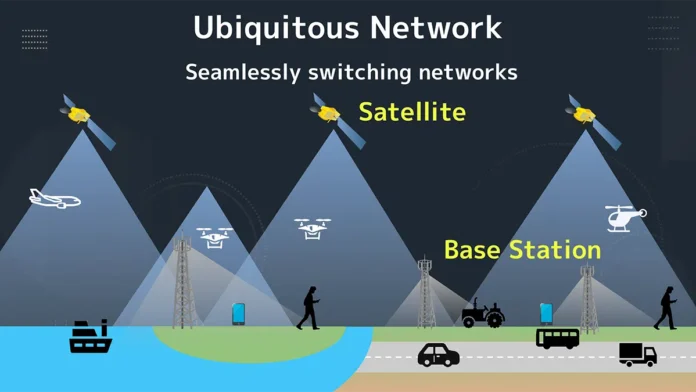Softbank and Intelsat are developing a universal device capable of maintaining a network connection worldwide
Softbank and Intelsat have announced a joint effort to establish “seamless 5G connections” between mobile and satellite networks. The pair said the hybrid network will be “ubiquitous,” providing connectivity worldwide.
As part of the match-up, the companies are setting out to develop a universal device capable of maintaining a network connection regardless of where it finds itself. “For example, a future connected vehicle equipped with such a device will be able to seamlessly switch to a non-terrestrial satellite communication network when outside of terrestrial mobile network coverage,” they said. They added that a device like this has “wide commercial applicability, including in land mobile, maritime, and disaster response and recovery.”
The design, development, field testing and commercialization of new hybrid network products, of which both parties will be involved, will be conducted in phases and will be aligned with the new 3GPP 5G non-terrestrial network standards, they said.
“Intelsat and SoftBank share a pioneering vision of Ubiquitous Networking and seamless interoperability between satellite and terrestrial networks,” commented Bruno Fromont, Intelsat chief technology officer. “Until now, the challenge was aligning standards that allowed the two different networks to connect. With recent progress on 5G-based standardization of non-terrestrial networks led by Intelsat at 3GPP and this strategic collaboration with SoftBank, we are ideally positioned to accelerate the design and practical implementation of commercial hybrid services that will allow devices to freely roam between satellite and terrestrial networks.”
Satellite communication has been a particular focus for the Japanese telecom operator as of late. Earlier this month, for instance, the carrier struck a deal with Eutelsat Group to offer satellite connectivity services, revealing that it plans to launch those services this December, leveraging Eutelsat OneWeb’s low Earth orbit (LEO) satellite network. It noted in a blog post, as well, that as of early July, it had acquired a blanket license for operating infrastructure including Very Small Aperture Terminal (VSAT) earth stations and mobile earth stations, which it said was a first for a Japan-based telecom operator.

